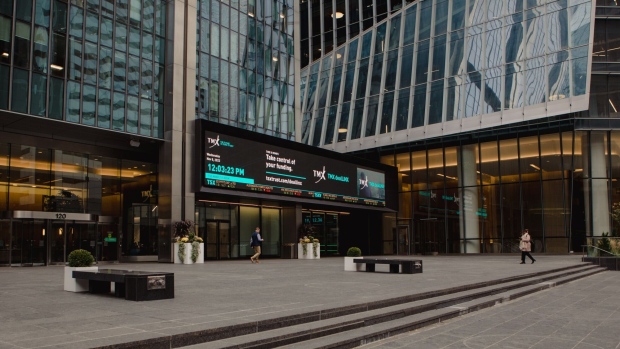Mar 14, 2024
The Daily Chase: TSX flirts with an all-time high
, BNN Bloomberg

Here are five things you need to know this morning:
TSX joins the ATH party: Let’s go back to March 29, 2022. Hollywood was still reeling from Will Smith’s Oscars slap, the world had yet to experience the absolute earworm that is Harry Styles’ ‘As It Was,’ and on the Toronto Stock Exchange, the composite index closed that day at 22,087. We didn’t know it then, but that was the high water mark for the TSX, as Canada’s benchmark index slumped for most of the rest of 2022 as central banks started raising lending rates, and it has spent much of the last two years seesawing above and below the 20,000 mark. But that could all change soon, as the TSX is within striking distance of a new all-time high after closing at 21,970 on Wednesday. If it happens Thursday, it won’t be a moment too soon for Canadian investors, who have patiently waited while indexes in Asia, Europe and the U.S. hit all-time high after all-time high this year, riding the momentum of Magnificent Seven tech giants, AI names like Nvidia and pharma giants like Eli Lilly and Novo Nordisk. The TSX doesn’t have a lot of companies in those sectors popular with investors right now, so its relative underperformance is perhaps to be expected.
Clock ticking on TikTok: The U.S. House of Representatives voted overwhelmingly to ban the wildly popular social media app TikTok from the U.S. on Wednesday, unless the Chinese-owned company divests itself to new ownership. The bill now heads to the Senate, where its fate is far from certain. But regardless of what happens, it’s a fascinating chapter in the story of frosty relations between the U.S. and China, where a long-simmering trade war is showing no signs of easing. China, for its part, is accusing the U.S. of “unreasonably suppressing” the app and warns it will take all legal measures at its disposal to fight the bill. Joe Biden says he would sign the bill if it landed on his desk, despite signing up for an account himself this year as part of his re-election strategy.
Transat hopes turbulence is behind it: Airline investors — and passengers — have had a bumpy ride this year, as the business model continues to navigate through unprecedented upheaval. That trend continued as Transat posted quarterly results today; numbers that showed a $61 million net loss for the carrier last quarter, even as its revenues rose by one sixth. The Montreal-based company says revenue for the three months up until the end of January came in at $785 million, up from $667 million a year ago, but demand was held back by fears about labour unrest and the flight cancellations that would have accompanied it. The company’s flight attendants twice rejected a deal that their union negotiated with the carrier, and that uncertainty led to a drop in bookings. The airline says all that is behind it now, as the workers have ratified a new deal with the airline as of the end of last month.
Profits increase at grocery owner Empire: Empire Company, the parent of the Sobeys, Safeway, Farm Boy and FreshCo grocery chains, says it earned $134.2 million in profit last quarter, an increase from last year’s level but slightly below analysts’ expectations. Sales across the company’s various grocery brands came in at just over $7.49 billion for the quarter, incrementally up from last year. But the company says growth was held back by lower fuel revenue mainly due to the sale of the company’s gas stations in Western Canada. The company is trumpeting the results as solid, but notes that customers are continuing to be cautious about their spending amid stubbornly high inflation.
Body Shop bankruptcy takes new turn: After abruptly closing up shop and commencing bankruptcy proceedings around the world last month, retailer The Body Shop is now facing a class action lawsuit in the U.S. from its fired workers who allege the company did not provide the appropriate amount of notice before implementing mass layoffs. Bloomberg is reporting that the lawsuit is seeking damages on behalf of hundreds of workers because the layoffs violated state and federal rules concerning layoffs. The company was bought by New York-based private equity group Aurelius Capital Management for US$260 million last November, and the legal woes surrounding the company’s collapse are cascading. In Canada, the company is closing about a third of its locations, and in regulatory filings related to its insolvency proceedings, the Canadian unit alleges that the company’s international parent mismanaged the finances of the Canadian arm, causing it to have to restructure.